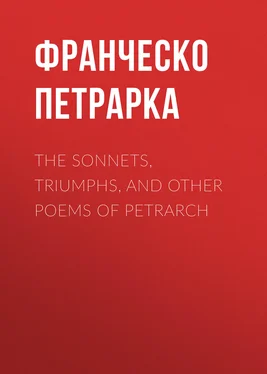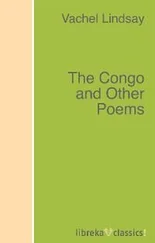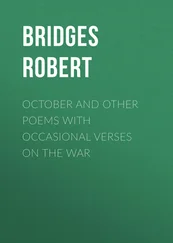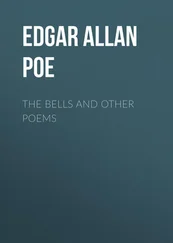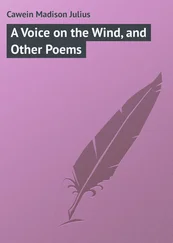Франческо Петрарка - The Sonnets, Triumphs, and Other Poems of Petrarch
Здесь есть возможность читать онлайн «Франческо Петрарка - The Sonnets, Triumphs, and Other Poems of Petrarch» — ознакомительный отрывок электронной книги совершенно бесплатно, а после прочтения отрывка купить полную версию. В некоторых случаях можно слушать аудио, скачать через торрент в формате fb2 и присутствует краткое содержание. Жанр: foreign_poetry, Поэзия, foreign_antique, foreign_prose, на английском языке. Описание произведения, (предисловие) а так же отзывы посетителей доступны на портале библиотеки ЛибКат.
- Название:The Sonnets, Triumphs, and Other Poems of Petrarch
- Автор:
- Жанр:
- Год:неизвестен
- ISBN:нет данных
- Рейтинг книги:5 / 5. Голосов: 1
-
Избранное:Добавить в избранное
- Отзывы:
-
Ваша оценка:
- 100
- 1
- 2
- 3
- 4
- 5
The Sonnets, Triumphs, and Other Poems of Petrarch: краткое содержание, описание и аннотация
Предлагаем к чтению аннотацию, описание, краткое содержание или предисловие (зависит от того, что написал сам автор книги «The Sonnets, Triumphs, and Other Poems of Petrarch»). Если вы не нашли необходимую информацию о книге — напишите в комментариях, мы постараемся отыскать её.
The Sonnets, Triumphs, and Other Poems of Petrarch — читать онлайн ознакомительный отрывок
Ниже представлен текст книги, разбитый по страницам. Система сохранения места последней прочитанной страницы, позволяет с удобством читать онлайн бесплатно книгу «The Sonnets, Triumphs, and Other Poems of Petrarch», без необходимости каждый раз заново искать на чём Вы остановились. Поставьте закладку, и сможете в любой момент перейти на страницу, на которой закончили чтение.
Интервал:
Закладка:
"I am aware that you dislike all innovation; but what I propose would be no innovation on your part. Italy is as well known to you as Germany. Brought hither in your youth by your illustrious sire, he made you acquainted with our cities and our manners, and taught you here the first lessons of war. In the bloom of your youth, you have obtained great victories. Can you fear at present to enter a country where you have triumphed since your childhood?
"By the singular favour of Heaven we have regained the ancient right of being governed by a prince of our own nation. 12 12 Petrarch's words are: "civi servare suo;" but he takes the liberty of considering Charles as—adoptively—Italian, though that Prince was born at Prague.
Let Germany say what she will, Italy is veritably your country * * * * * Come with haste to restore peace to Italy. Behold Rome, once the empress of the world, now pale, with scattered locks and torn garments, at your feet, imploring your presence and support!" Then follows a dissertation on the history and heroes of Rome, which might be wearisome if transcribed to a modern reader. But the epistle, upon the whole, is manly and eloquent.
A few days after despatching his letter to the Emperor, Petrarch made a journey to Verona to see his friends. There he wrote to Socrates. In this letter, after enumerating the few friends whom the plague had spared, he confesses that he could not flatter himself with the hope of being able to join them in Provence. He therefore invokes them to come to Italy, and to settle either at Parma or at Padua, or any other place that would suit them. His remaining friends, here enumerated, were only Barbato of Sulmona, Francesco Rinucci, John Boccaccio, Lælius, Guido Settimo, and Socrates.
Petrarch had returned to Padua, there to rejoin the Cardinal of Boulogne. The Cardinal came back thither at the end of April, 1350, and, after dispensing his blessings, spiritual and temporal, set out for Avignon, travelling by way of Milan and Genoa. Petrarch accompanied the prelate out of personal attachment on a part of his journey. The Cardinal was fond of his conversation, but sometimes rallied the poet on his enthusiasm for his native Italy. When they reached the territory of Verona, near the lake of Guarda, they were struck by the beauty of the prospect, and stopped to contemplate it. In the distance were the Alps, topped with snow even in summer. Beneath was the lake of Guarda, with its flux and reflux, like the sea, and around them were the rich hills and fertile valleys. "It must be confessed," said the Legate to Petrarch, "that your country is more beautiful than ours." The face of Petrarch brightened up. "But you must agree," continued the Cardinal, perhaps to moderate the poet's exultation, "that ours is more tranquil." "That is true," replied Petrarch, "but we can obtain tranquillity whenever we choose to come to our senses, and desire peace, whereas you cannot procure those beauties which nature has lavished on us ."
Petrarch here took leave of the Cardinal, and set out for Parma. Taking Mantua in his way, he set out from thence in the evening, in order to sleep at Luzora, five leagues from the Po. The lords of that city had sent a courier to Mantua, desiring that he would honour them with his presence at supper. The melting snows and the overflowing river had made the roads nearly impassable; but he reached the place in time to avail himself of the invitation. His hosts gave him a magnificent reception. The supper was exquisite, the dishes rare, the wines delicious, and the company full of gaiety. But a small matter, however, will spoil the finest feast. The supper was served up in a damp, low hall, and all sorts of insects annoyed the convivials. To crown their misfortune an army of frogs, attracted, no doubt, by the odour of the meats, crowded and croaked about them, till they were obliged to leave their unfinished supper.
Petrarch returned next day for Parma. We find, from the original fragments of his poems, brought to light by Ubaldini, that he was occupied in retouching them during the summer which he passed at Parma, waiting for the termination of the excessive heats, to go to Rome and attend the jubilee. With a view to make the journey pleasanter, he invited Guglielmo di Pastrengo to accompany him, in a letter written in Latin verse. Nothing would have delighted Guglielmo more than a journey to Rome with Petrarch; but he was settled at Verona, and could not absent himself from his family.
In lieu of Pastrengo, Petrarch found a respectable old abbot, and several others who were capable of being agreeable, and from their experience, useful companions to him on the road. In the middle of October, 1350, they departed from Florence for Rome, to attend the jubilee. On his way between Bolsena and Viterbo, he met with an accident which threatened dangerous consequences, and which he relates in a letter to Boccaccio.
"On the 15th of October," he says, "we left Bolsena, a little town scarcely known at present; but interesting from having been anciently one of the principal places in Etruria. Occupied with the hopes of seeing Rome in five days, I reflected on the changes in our modes of thinking which are made by the course of years. Fourteen years ago I repaired to the great city from sheer curiosity to see its wonders. The second time I came was to receive the laurel. My third and fourth journey had no object but to render services to my persecuted friends. My present visit ought to be more happy, since its only object is my eternal salvation." It appears, however, that the horses of the travellers had no such devotional feelings; "for," he continues, "whilst my mind was full of these thoughts, the horse of the old abbot, which was walking upon my left, kicking at my horse, struck me upon the leg, just below the knee. The blow was so violent that it sounded as if a bone was broken. My attendants came up. I felt an acute pain, which made me, at first, desirous of stopping; but, fearing the dangerousness of the place, I made a virtue of necessity, and went on to Viterbo, where we arrived very late on the 16th of October. Three days afterwards they dragged me to Rome with much trouble. As soon as I arrived at Rome, I called for doctors, who found the bone laid bare. It was not, however, thought to be broken; though the shoe of the horse had left its impression."
However impatient Petrarch might be to look once more on the beauties of Rome, and to join in the jubilee, he was obliged to keep his bed for many days.
The concourse of pilgrims to this jubilee was immense. One[Pg lxxvii] can scarcely credit the common account that there were about a million pilgrims at one time assembled in the great city. "We do not perceive," says Petrarch, "that the plague has depopulated the world." And, indeed, if this computation of the congregated pilgrims approaches the truth, we cannot but suspect that the alleged depopulation of Europe, already mentioned, must have been exaggerated. "The crowds," he continues, "diminished a little during summer and the gathering-in of the harvest; but recommenced towards the end of the year. The great nobles and ladies from beyond the Alps came the last."
Many of the female pilgrims arrived by way of the marshes of Ancona, where Bernardino di Roberto, Lord of Ravenna, waited for them, and scandal whispered that his assiduities and those of his suite were but too successful in seducing them. A contemporary author, in allusion to the circumstance, remarks that journeys and indulgences are not good for young persons, and that the fair ones had better have remained at home, since the vessel that stays in port is never shipwrecked.
The strangers, who came from all countries, were for the most part unacquainted with the Italian language, and were obliged to employ interpreters in making their confession, for the sake of obtaining absolution. It was found that many of the pretended interpreters were either imperfectly acquainted with the language of the foreigners, or were knaves in collusion with the priestly confessors, who made the poor pilgrims confess whatever they chose, and pay for their sins accordingly. A better subject for a scene in comedy could scarcely be imagined. But, to remedy this abuse, penitentiaries were established at Rome, in which the confessors understood foreign languages.
Читать дальшеИнтервал:
Закладка:
Похожие книги на «The Sonnets, Triumphs, and Other Poems of Petrarch»
Представляем Вашему вниманию похожие книги на «The Sonnets, Triumphs, and Other Poems of Petrarch» списком для выбора. Мы отобрали схожую по названию и смыслу литературу в надежде предоставить читателям больше вариантов отыскать новые, интересные, ещё непрочитанные произведения.
Обсуждение, отзывы о книге «The Sonnets, Triumphs, and Other Poems of Petrarch» и просто собственные мнения читателей. Оставьте ваши комментарии, напишите, что Вы думаете о произведении, его смысле или главных героях. Укажите что конкретно понравилось, а что нет, и почему Вы так считаете.
